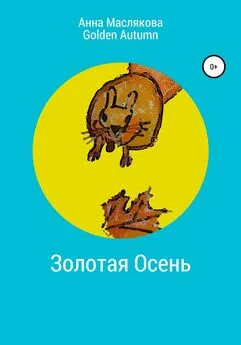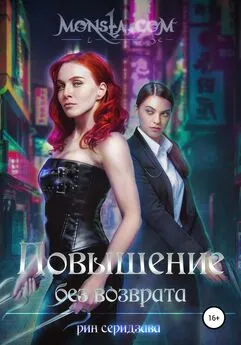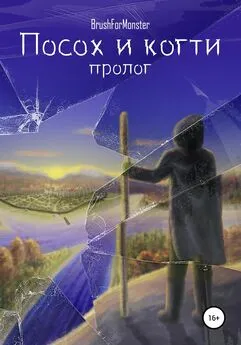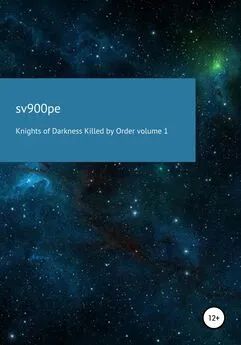Mons Kallentoft - Autumn Killing
- Название:Autumn Killing
- Автор:
- Жанр:
- Издательство:неизвестно
- Год:неизвестен
- ISBN:нет данных
- Рейтинг:
- Избранное:Добавить в избранное
-
Отзывы:
-
Ваша оценка:
Mons Kallentoft - Autumn Killing краткое содержание
Autumn Killing - читать онлайн бесплатно полную версию (весь текст целиком)
Интервал:
Закладка:
Bettina.
My Danish beauty. Refined and unrefined at the same time. I first saw you in the summer of 1958, when I was working as a foreman at the Madsborg estate on Jutland, there to get some experience of farming.
You were working in the kitchen that summer. A perfectly ordinary girl, and we would swim in the lake together. I’ve forgotten the name of the lake, but it was on the estate, and I brought you back home after that summer and I remember Father and Mother, how they were dubious at first, but gradually gave in to your charm, and Skogsa succumbed to your cheerful temperament.
And you, how could you, Bettina? How dare you give in to cancer? Were you sad that our income wasn’t enough to keep the castle in good condition? It would have eaten too much into our capital, all the millions that were needed.
I don’t want to believe that. But I can feel guilty, the guilt you feel when you hurt the person you love most of all.
Pain. You had to learn all about pain, and you told me there was nothing worth knowing in those lessons.
The paintings on the walls here are your choices. Ancher, Kirkeby. And the portrait of my ancestor, Erik, and all the other wonderful fools and madmen who went before me.
You died at the castle, Bettina. You would have hated having to leave it, and I’m ashamed for your spirit now. No matter how gentle you could be, you could be just as hard when it came to defending what was yours.
Most of all you worried about the boy.
Among your last words: ‘Look after Fredrik. Protect him. He can’t manage on his own.’
Sometimes I wonder if he was listening at the door of your sickroom.
You never know with him. Or maybe don’t want to know. Like everyone else, I love my daughter, and him, my son. But I’ve always been able to see his shortcomings, even if I didn’t want to. I’d rather have ignored them and seen his good qualities instead, but that doesn’t seem to be possible. I see my son, and I see almost nothing but his failings, and I hate myself for it. Sometimes he can’t even seem to control his drinking.
The clock on the bureau strikes six and Axel stops by the sitting-room window. Something breaks out of the darkness below and someone walks through the park. A person dressed in black. The same man he thought he saw earlier?
Axel pushes the thought aside.
I knew it was a mistake, he thinks instead. But I still had to do it: letting Fredrik, my firstborn, the next Count Fagelsjo, look after our affairs, giving him access to our capital when my soul turned black after the cancer won. He never wanted to be at the castle, never wanted to manage the small estate and forest that were left, because it was now more profitable to take the EU subsidies for set-aside land than rent it out.
Didn’t want to. Couldn’t. But he ought to have been able to handle the money.
He’s got financial qualifications, and I practically gave him free rein.
But everyone has their good and bad sides, their faults and shortcomings, he thinks.
Not everyone has enough of the predator in them, enough of the merciless power that seems to be needed in this world. Father tried to get me to appreciate the responsibility that comes with privilege, how we have to assume a position of leadership in society. But in some ways he belonged to a bygone age. Certainly, I led the work out at Skogsa, I was respected in the finer society of the region, but a leader? No. I tried to get Fredrik and Katarina at least to appreciate the value of privilege, not to take it for granted. I don’t know that I succeeded.
Bettina, can you tell me what I can do to make Katarina happy? And don’t try that same old tune again. We had different opinions about that, as you know.
Be quiet, Bettina.
Be quiet.
Let me put it like this: Was the bloodline diluted with you, Bettina?
He has sometimes wondered this when looking at Fredrik, and Katarina too, occasionally.
The green Barbour jacket sits tightly across Axel Fagelsjo’s stomach, but he’s had it for twenty-five years and doesn’t want to buy another one just because the kilos stick a bit more easily than they used to.
Things must run their course, he thinks as he stands in the hall.
We Fagelsjos have lived more or less the same way for almost five hundred years. We set the tone for the area, for this city.
Sometimes he thinks that people around here are imitating the life he and his family have always had. The first water closet in Ostergotland was at Skogsa, his grandfather wore the first three-piece suit. They have always shown the way, and the business and political communities understood this, even if that’s all history now.
There was no invitation to the county dinner this year.
In all the years that the county governors held dinners for the most prominent people in the county, there has always been a Fagelsjo among the guests. But not this year.
He saw the picture taken at Linkoping Castle in the Ostgota Correspondent . Count Douglas was there. The historian Dick Harrison. The director of Saab’s aviation division. The head of information at Volvo. A parliamentary under-secretary with roots in the city. The editor-in-chief of the Correspondent . The Chair of the National Sports Association. Baron Adelstal.
But no one from the Fagelsjo dynasty.
He pulls on his thick black rubber boots.
I’m coming now, Bettina.
The calfskin gloves. What leather!
Axel thinks that things will probably sort themselves out anyway. Hears Bettina’s voice: ‘Protect the boy.’
I did protect Fredrik. I did what was necessary, even if, in theory, the bank could have been held responsible.
The memory of Bettina’s face fades.
Maybe I should have let things go to hell with the boy, Axel thinks, as he presses the cold button of the lift to go downstairs and out into the lonely dawn.
5
No other engine sounds like that of the Range Rover: elegant yet powerful. And the vehicle responds nicely when Jerry Petersson presses the accelerator. Maybe that was how the horses of former centuries responded when long-dead counts pressed their spurs to the flanks of their sweating steeds.
No horses here now.
No counts.
But he can always get a few horses if he meets a woman who likes them, they have a tendency to like horses, women. Something of a cliche, but this cliche was also a reality, like so many others.
Jerry Petersson sees banks of fog drifting in across the fields, coming to rest beside the pine forest over to the east. The dog is sitting beside him in the passenger seat, letting its perfectly balanced body move in time with the vehicle’s suspension, its eyes searching the landscape for something living to chase after, stand over, help to bring down. Jerry Petersson runs a hand through its coarse, damp fur. It smells, the dog, but it’s a smell that suits the countryside, with its raw, penetrating authenticity. A beagle, a male, that he has named Howie after Howard Hughes, the Hollywood madman of the thirties who is said to have founded the modern aviation industry, and who, according to legend, ended up a recluse in a castle outside Las Vegas, dependent on blood transfusions.
Jerry once read a biography of him and thought: if I ever buy a dog, I’m going to name him after an even bigger madman than me.
The dog’s nostrils contract, open again, and its big black pupils seem to want to devour the land around Skogsa.
The estate is never more beautiful than in the morning, when the approaching day seems to soften the earth and rocks. Rain is falling against the windscreen and roof and he stops the car at the side of the road, watching some birds hopping about on the oyster-shell coloured soil, pecking for worms in the rotting vegetation and the pools that are growing larger with each passing day. The leaves are lying in drifts here, and he thinks they look like a ragged cover in a beautiful, forgotten sketch for an oil painting. And under the cover life goes on. Grubs pupating. Beetles fighting each other. Mice swimming in streams of rain towards goals so distant that they can’t even dream they exist.
The dog is starting to get anxious, whimpering, wanting to get out, but Jerry soothes it.
‘There now, calm down, you can get out soon.’
A landscape.
Can that be a person’s fate?
Sometimes, when Jerry drives around the estate, he imagines he can see all the characters that have come and gone in his life. They drift around the trees, the rocks and buildings.
It was inevitable that he would end up here.
Wasn’t it?
Snow falling one New Year’s Eve, falling so thickly it makes this morning’s fog look as transparent as newly polished glass.
He grew up not far from here.
In a rented flat in Berga with his parents.
Jerry looks at himself in the rear-view mirror. Starts the engine and drives on.
He drives around two bends before stopping the car again. The dog is even more restless now, and Jerry opens the door, letting the dog out first before getting out himself. The dog races off across the open field, presumably chasing the scent of a deer or elk, or a hare or fox.
He looks out over the field for a while before stepping down onto the soft ground. He trudges about, watching the dog running back and forth along the line of the forest, leaping into a deep ditch before reappearing only to vanish into a pile of leaves where the faded ochre-colours compete for attention with others that seem to be powdered matt bronze or dull gold.
Apart from the dog, Petersson is completely alone out in the field, yet he still feels quite at ease here, in a place where everything can die yet also be born, a breaking point in people’s lives, a sequence of possibilities.
He runs his hand through his bleached hair, thinking how well it suits his sharp nose and hard blue eyes. The wrinkles in his brow. Business wrinkles. Well-earned.
The forest over there.
Fir trees and pines, undergrowth. A lot of game this year. His tenant farmers are coming later today, they’re going to try to get a young elk or a couple of deer. Something needs be killed.
The Fagelsjo family.
What wouldn’t they give for the chance to hunt in these forests again?
He looks at his arms, at the bright yellow Prada raincoat, the raindrops drumming on his head and the yellow GORE-TEX fabric.
‘Howie,’ Petersson calls. ‘Howie. Time to go now.’
Hard. Tough. An ice-cold machine. A man prepared to step over dead bodies.
That was how people talked about him in the business circles he moved in up in Stockholm. A shadow to most people. A rumour. A topic of conversation, something that was often the cause of admiration in a world where it was deemed desirable to be so successful that you could lie low instead of maintaining a high profile, instead of appearing on television talk shows to get more clients.
Jerry Petersson?
Brilliant, or so I’ve heard. A good lawyer. Didn’t he get rich from that IT business, because he got out in time? Supposed to be a real cunt-magnet.
But also: Watch out for him.
Isn’t he involved with Jochen Goldman? Don’t they own some company together?
‘Howie.’
But the dog doesn’t come, doesn’t want to come. And Jerry knows he can leave it be, let the dog find its own way home to the castle through the forest in its own good time. It always comes home after a few hours. But for some reason he wants to call the dog back to him now, come to some sort of arrangement before they part.
‘Howie!’
And the dog must have heard the urgency in his voice, because it comes racing over the whole damn field, and is soon back with Jerry.
Читать дальшеИнтервал:
Закладка:
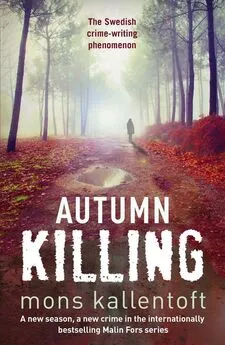

![Альфред Ван Вогт - Чудовище / The Monster [= Пятый вид: Загадочное чудовище; Воскресшее чудовище; Возрождение]](/books/155614/alfred-van-vogt-chudoviche-the-monster-pyatyj-v.webp)

